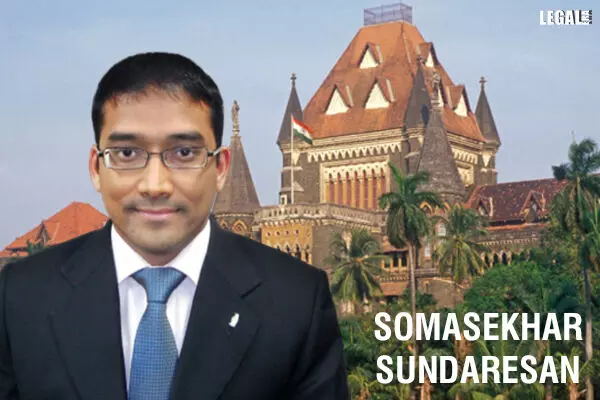- Home
- News
- Articles+
- Aerospace
- Agriculture
- Alternate Dispute Resolution
- Banking and Finance
- Bankruptcy
- Book Review
- Bribery & Corruption
- Commercial Litigation
- Competition Law
- Conference Reports
- Consumer Products
- Contract
- Corporate Governance
- Corporate Law
- Covid-19
- Cryptocurrency
- Cybersecurity
- Data Protection
- Defence
- Digital Economy
- E-commerce
- Employment Law
- Energy and Natural Resources
- Entertainment and Sports Law
- Environmental Law
- FDI
- Food and Beverage
- Health Care
- IBC Diaries
- Insurance Law
- Intellectual Property
- International Law
- Know the Law
- Labour Laws
- Litigation
- Litigation Funding
- Manufacturing
- Mergers & Acquisitions
- NFTs
- Privacy
- Private Equity
- Project Finance
- Real Estate
- Risk and Compliance
- Technology Media and Telecom
- Tributes
- Zoom In
- Take On Board
- In Focus
- Law & Policy and Regulation
- IP & Tech Era
- Viewpoint
- Arbitration & Mediation
- Tax
- Student Corner
- AI
- ESG
- Gaming
- Inclusion & Diversity
- Law Firms
- In-House
- Rankings
- E-Magazine
- Legal Era TV
- Events
- News
- Articles
- Aerospace
- Agriculture
- Alternate Dispute Resolution
- Banking and Finance
- Bankruptcy
- Book Review
- Bribery & Corruption
- Commercial Litigation
- Competition Law
- Conference Reports
- Consumer Products
- Contract
- Corporate Governance
- Corporate Law
- Covid-19
- Cryptocurrency
- Cybersecurity
- Data Protection
- Defence
- Digital Economy
- E-commerce
- Employment Law
- Energy and Natural Resources
- Entertainment and Sports Law
- Environmental Law
- FDI
- Food and Beverage
- Health Care
- IBC Diaries
- Insurance Law
- Intellectual Property
- International Law
- Know the Law
- Labour Laws
- Litigation
- Litigation Funding
- Manufacturing
- Mergers & Acquisitions
- NFTs
- Privacy
- Private Equity
- Project Finance
- Real Estate
- Risk and Compliance
- Technology Media and Telecom
- Tributes
- Zoom In
- Take On Board
- In Focus
- Law & Policy and Regulation
- IP & Tech Era
- Viewpoint
- Arbitration & Mediation
- Tax
- Student Corner
- AI
- ESG
- Gaming
- Inclusion & Diversity
- Law Firms
- In-House
- Rankings
- E-Magazine
- Legal Era TV
- Events
Supreme Court Collegium reiterates elevation of Somasekhar Sundaresan as Bombay High Court judge

Supreme Court Collegium reiterates elevation of Somasekhar Sundaresan as Bombay High Court judge
Stresses on his qualities including honesty, integrity, and emotional stability
The Supreme Court Collegium has reiterated its earlier proposal to elevate advocate Somasekhar Sundaresan as a judge of the Bombay High Court.
The statement issued recently by the Collegium, headed by Chief Justice of India DY Chandrachud, read, "The expression of views by a candidate does not disentitle him to hold a constitutional office so long as the person proposed for a judgeship is a person of competence, merit and integrity."
In October 2021, Sundaresan was recommended for elevation by the Bombay High Court Collegium. Later, in February 2022, the Supreme Court Collegium also recommended his name.
However, in November last, the Central government opposed his candidature. The reason mentioned was that Sundaresan had, "aired his views in the social media on several matters, which were the subject matter of consideration before the courts."
In response, the Collegium stated, "The views on social media attributed to the candidate, do not furnish any foundation to infer that he is biased."
It added that the lawyer's views were already being debated in the public domain. It reminded the government that all citizens had the right to freedom of speech and expression under the Constitution of India.
The judicial appointments body maintained, "The manner in which the candidate has expressed his views does not justify the inference that he is a 'highly biased opinionated person' or that he has been 'selectively critical on the social media on the important policies, initiatives and directions of the government' (as indicated in the objections of the Department of Justice) nor is there any material to indicate that the expressions used by the candidate are suggestive of his links with any political party with strong ideological leanings."
The Collegium further highlighted that Sundaresan specialized in commercial law. He would be an asset to the high court, which had a large volume of commercial and securities law cases.
It also pointed out the reliance of the Department of Justice on the second judge's case to the effect that the selected candidate must possess high integrity, honesty, skill, a high order of emotional stability, firmness, serenity, legal soundness, ability and endurance. The Collegium stated that Sundaresan possessed all such characteristics.
Meanwhile, it also repeated the names of senior advocate Saurabh Kirpal and two other lawyers of the Calcutta High Court as judges.


